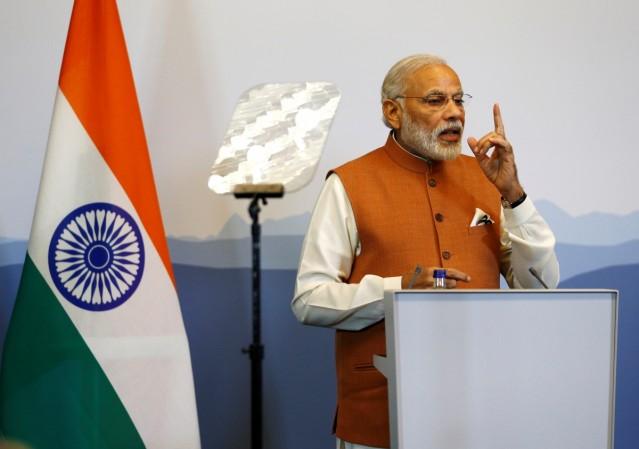
The government of Narendra Modi completed three years on Friday, May 26. It was on this day in 2014 when Modi took oath as the 14th prime minister of the country after the BJP-led National Democratic Alliance (NDA) bagged 336 out of 543 seats in the Lok Sabha. It was after three decades that the Centre saw a single party winning the majority by itself (BJP won 282 seats, 10 more than the magic figure of 272).
At the end of the third year, Modi still continues to be the most popular political leader of the country, thanks to a discredited opposition and his own leadership which has been proactive and thoughtful. All the public surveys that have come out in this period have predicted victories of the BJP and a near-zero fall in the popularity of PM Modi, virtually neutralising the anti-incumbency factor even after 36 months.
Also read: How the Opposition has done in 3 years of Modi rule
But has the Modi government been successful at all fronts? Although the list of Modi's accomplishments certainly outshines the gray points, but still those low points are as real as the high ones and need to be addressed.
First, the high points.
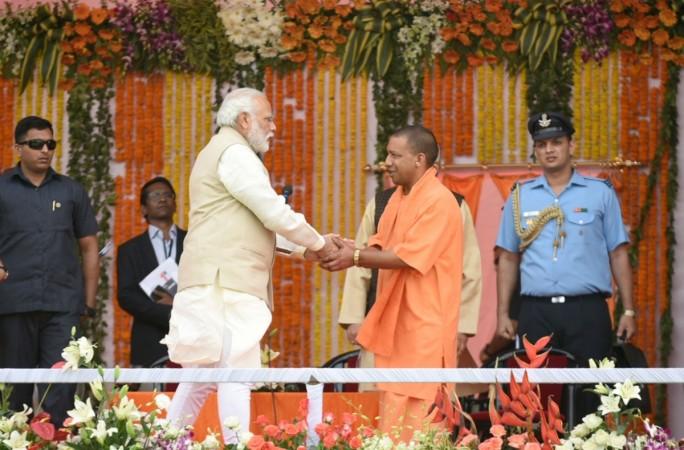
ELECTION WINS: PM Modi's BJP proved that the overwhelming victory in the 2014 general elections was not a fluke and it was backed with more emphatic wins.
After winning the throne in New Delhi, Modi led from the front to see his party win Maharashtra, Haryana, Jharkhand, Assam, Uttar Pradesh and Uttarakhand.
It also opened its account for the first time in Kerala and also came from behind to snatch power in Goa and Manipur from the Congress.
In Jammu and Kashmir, too, the BJP came to power in alliance with the Peoples Democratic Party. Besides these Assembly wins, the BJP also emerged a strong force in civic elections in Maharashtra and Odisha and retained power in Delhi, thumping the popular Aam Aadmi Party.
NO CORRUPTION: This is one area where the Modi government has been flawless. Especially after the tainted-to-the-core UPA II, Modi had the added responsibility to ensure that the same bug which had hit his predecessor Manmohan Singh did not derail his government. And Modi has done it perfectly so far, giving the Opposition virtually nothing to use against it.
Being an outsider and yet presenting a clean government the very first time he came to power, Modi proved to the people that he is a man of action and not just talks. After three years, this is certainly one of Modi 's biggest feats. The perception about the Modi government has been so good that even the Vyapam scam in a BJP-ruled state of Madhya Pradesh mostly went unnoticed.
FOREIGN POLICY: PM Modi's proactive foreign policy is also one of his regime's high points. Instead of allowing the hostile mainstream media to do the work for him or even deputing the foreign minister, the PM himself embarked on a journey to reach out to the world and serve India's interests.
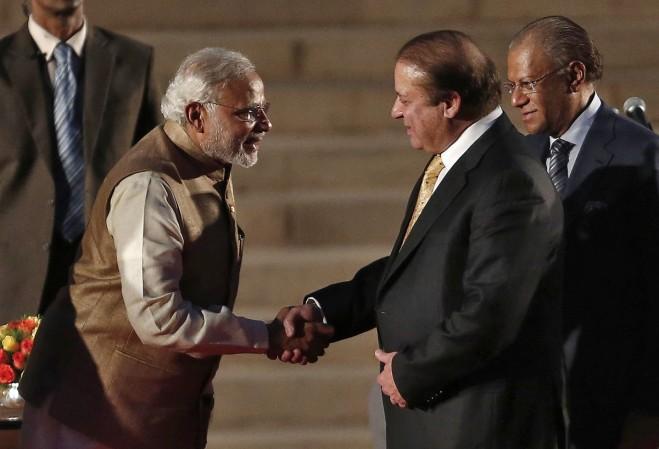
His inviting the South Asian neighbours to his oath-taking, making multiple visits to the US, inviting former American president Barack Obama to the Republic-Day event in 2015, landing in Lahore all of a sudden to greet his Pakistani counterpart on his birthday, stitching up an India-Iran-Afghanistan axis or even reaching out to countries like Fiji and Mozambique to curb the Chinese influence were perfectly crafted foreign policy moves. Not many Indian leaders have been seen adding so much flexibility to the foreign-policy domain.
SURGICAL STRIKES: To some, it was a propaganda to counter Pakistan's excesses at the borders but the surgical strikes, as claimed by the army and the foreign affairs officials, in the wake of the Uri attacks on September 19, 2016, helped Modi by generating the all-important wave of nationalism. The Modi government resorted to the retaliatory tactics each time the Pakistani Army violated the ceasefire and targeted India's soldiers and it has proved to be a handy strategy.
SOCIAL WELFARE SCHEMES: No matter how much they have gained on the ground, but the constant campaigning about them by a highly tech-savvy prime minister and his party have made these schemes game changers. The Congress had also executed such schemes in the past but it did it in a dull, bureaucratic manner.
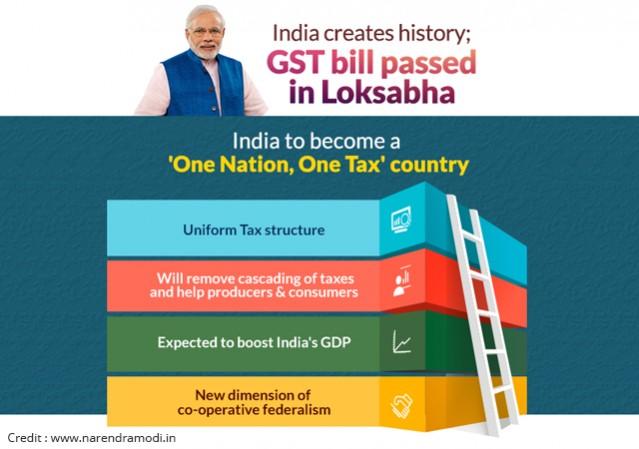
Modi added more colour to the populist game of social welfare and it struck a chord more successfully with both the middle and lower strata.
For example, the Ujjwala scheme to provide LPG connections to millions living below the poverty line yielded the saffron party rich results, especially in the UP elections. Earlier government's LPG politics was more about subsidising cooking gas and raising the cap on the quota of the subsidised LPGs. PM Modi raise the populist game a notch further by appealing to people to give up the subsidy so that the poorer can he helped. Take that Rahul Gandhi.
And, now the misses or stories that do not reflect the glory of Modi in the same way as the above points do:
THREE MAJOR ELECTION LOSSES: While Modi and his lieutenant Amit Shah led the BJP to victory in several important elections in the last three years, they faced humiliating losses in three elections in this time and they were in Delhi (2015), Bihar (2015) and Punjab (2017). While the losses in Delhi and Bihar to arch-rivals Arvind Kejriwal and Nitish Kumar-Lalu Prasad were defeats in battles of prestife for Modi, the debacle in Punjab where the BJP was in power along with the Akali Dal was more expected.
| Three major electoral losses for Narendra Modi between May 2014-May 2017 | ||
| Delhi (2015) | BJP won 3 out of 70 seats | AAP won 67 seats |
| Bihar (2015) | BJP won 53 out of 243 seats | Grand Alliance won 178 seats |
| Punjab (2017) | BJP won 3 out of 117 seats | Congress won 77 seats |
COW VIGILANTISM: The biggest curse in 'Modified' India has been cow vigilantism. No matter how much Modi has tried to project himself as a liberal leader who stands for all, the hardcore supporters of Hindutva find his era as one to turn India into a monolithic state and use the bovine as the medium to reach their goal.
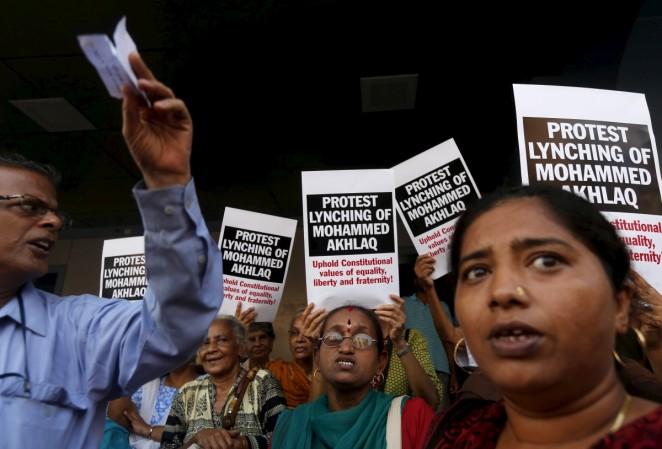
The lynching of Mohammad Akhlaq in Dadri in UP on charges of keeping beef in his house in 2015 is the worst Modi's India has seen in these three years.
Similarly, Dalits have been targeted for removing cow carcass and there have been a little change in the circumstances despite Modi making desperate appeal to stop the mindless atrocities, even in the form of inviting the attackers to target him instead.
Amid all this, the BJP, however, came out with a separate law for the northeast saying beef will not be banned in the states in that region if it came to power: a complete antithesis to its stance in the rest of the country.
DIRTY GANGA: The right to information has unearthed a sinister reality about River Ganga, the 'political' river of the Hindutva-wadis: the river is not even fit for bathing. And this has been the end result despite incessant flow of funds to clean up the river under the much publicised Clean Ganga Project. Specialists have said that under Modi, only ministers and budgets have changed but the river has remained the same. Even though people are made to pay cess for the Swachh Bharat Abhiyaan programme, how much of it is really seeing the daylight?
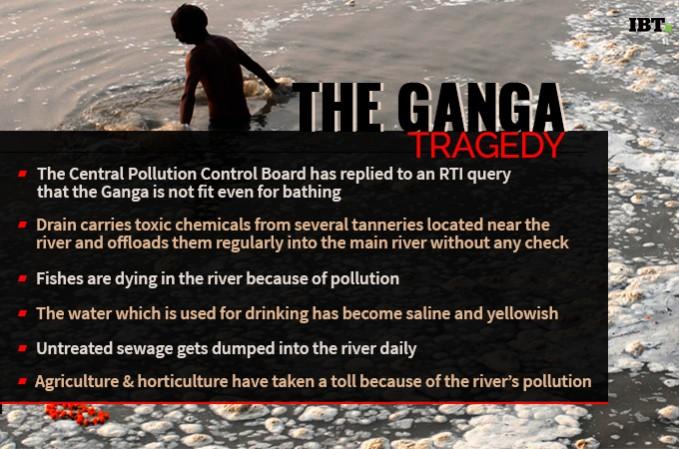
The Ganga project becomes all the more relevant because Varanasi, the constituency of PM Modi, is located on the banks of the holy river. Yet, the government has done next to nothing on the issue in the last three years.
JAMMU & KASHMIR: This is another failure of the Modi government in these three years. While the PM has tried to improve relations with Pakistan, he has not put an equal focus on bettering things in Kashmir which is continuously boiling over the last several months. It has, in turn, affected India's Pakistan policy.
Modi has tried to soothe the sentiments through building infrastructure but there has been clearly no political solution. Many say Modi has lacked the "Insaniyat" approach of Atal Behari Vajpayee when it came to Kashmir and rather opted for a meet fire with fire strategy which has seen more military activism and alienation of the Valley. And that despite being in power in the state.
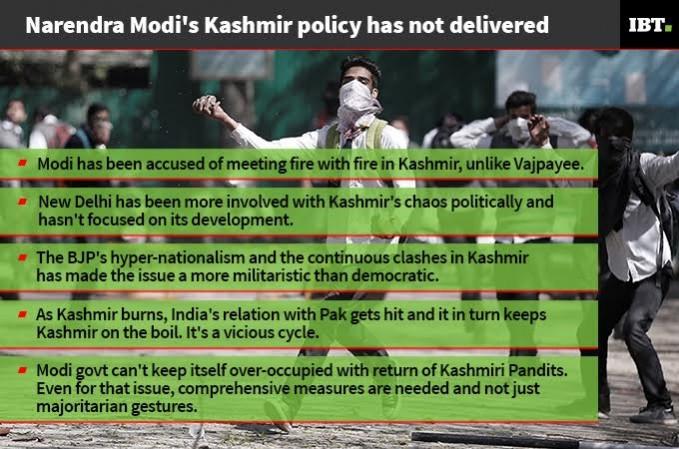
MAOIST MENACE: If the Modi government has struggled to keep Jammu and Kashmir peaceful, it has also found itself unprepared to tackle the Maoist menace within. Repeated attacks on security personnel by the Red terror in state like Chhattisgarh, which has been under the BJP's rule for 14 years now, shows little strategic innovation has taken place on the ground.
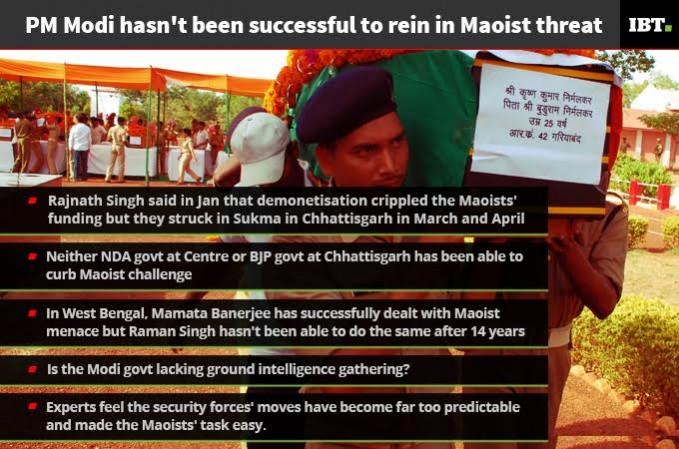
The Maoists also carried out disruptive activities in Odisha prior to Modi's visit there in April which states that the Modi government has to produce its magic in several parts of eastern and central India to make them peaceful in the true sense of the term.
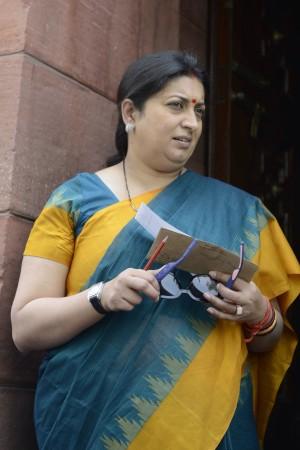
CONFRONTATION WITH STUDENTS: Several times during Modi's three years in power, the government was seen locking horns with the student community in various top institutions of the country over various issues.
Whether it is picking Gajendra Chauhan to head the Film & Television Institute of India or mismanaging the chaos centred around the arrest of Kanhaiya Kumar or death of Rohit Vemula in JNU and Hyderabad University, respectively, the Modi government had displayed its lack of capacity to deal with youth protest.
And given PM Modi's frequent efforts to establish himself as a leader popular with the youth, his government's confrontation with the students was an irony of sort.
Students are known to harbour diverse ideas and cultivate ideologies that might not seem compatible by the rulers of the day but that doesn't make it sensible to choose a war path with the youngsters and paint all those who refuse to toe the majority's ideology as something anti-national. In JNU, it was precisely what had happened.
Seemed a high but actually wasn't
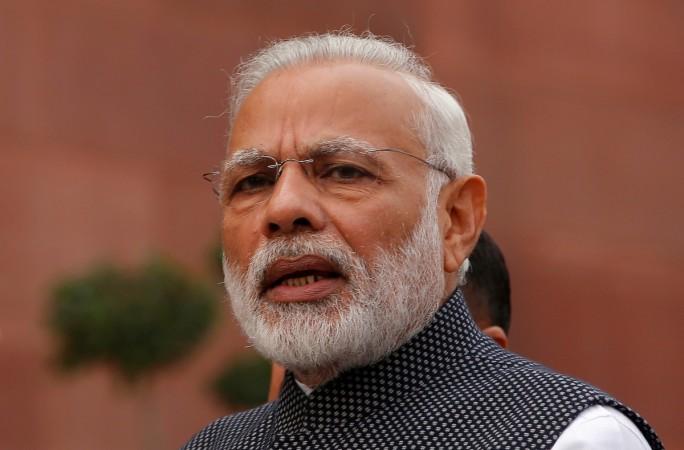
DEMONETISATION: It was one of Modi's biggest gambles taken in November 2016 and also the Opposition and economists predicted it to be a recipe for disaster, it proved to be otherwise initially and catapulted Modi's stature as a brave leader. Reports published in May 2017, however, proved that it was not as successful as the government had believed it to be for the GDP had seen a fall in the January-March quarter because of the measure.
PM Narendra Modi's demonetisation move has defied all counter arguments and delivered excellent political returns.Reuters
Demonetisation certainly had its drawbacks but the spin master in Modi turned it to his own favour politically. Modi had declared while scrapping old 500 and 1000-rupee notes that it would deal with black money and terrorists but in effect, the move made his victory in UP easier by drying up the opponents' cash-centric politics. Demonetisation is the biggest political victory for Modi during these three years though economically it proved otherwise.









!['Had denied Housefull franchise as they wanted me to wear a bikini': Tia Bajpai on turning down bold scripts [Exclusive]](https://data1.ibtimes.co.in/en/full/806605/had-denied-housefull-franchise-they-wanted-me-wear-bikini-tia-bajpai-turning-down-bold.png?w=220&h=138)



